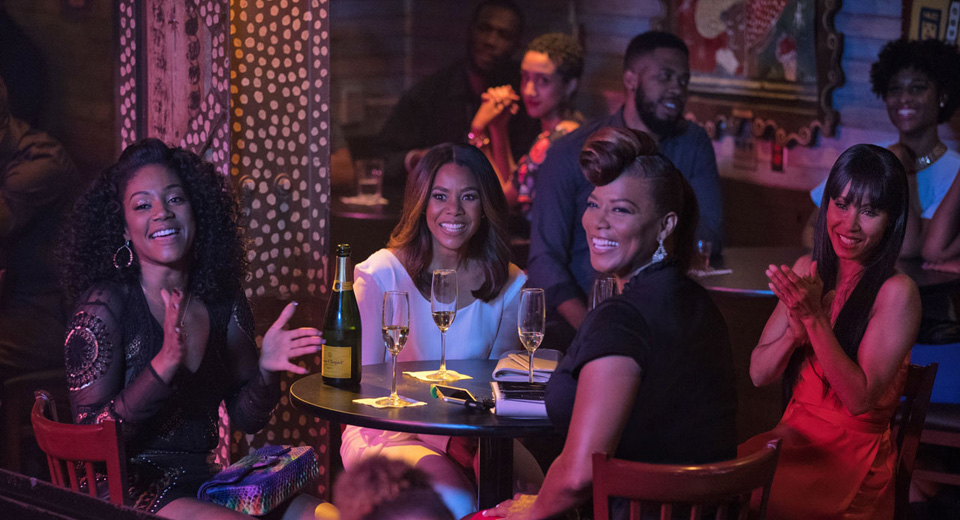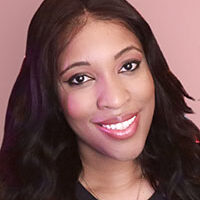
The July 21 release of the R-rated comedy Girls Trip, starring Regina Hall, Queen Latifah, Jada Pinkett Smith and Tiffany Haddish as lifelong friends who travel to New Orleans for the annual Essence Festival, is a triumphant comedic showcase of all the different layers of the experience of Black women. In a time when, although getting better, this part of the population is often not showcased beyond stereotypical roles in mainstream Hollywood films, this adult comedy serves as a breath of fresh air in the summer heat of action movies crowding the shallow end of the cinematic pool.
The plot is simple enough: Four friends, who have lost touch in the last four years, come together for a trip to rebuild their friendship. Through the course of the two-hour film scandalous fun is had, as the bonds of the ladies are tested. Yet this screenplay, which could have simply been a regular paint-by-number buddy comedy, achieved something deeper, by consciously seeking to break out of the box of the usual images and spaces Black women are relegated to in cinema and media as a whole.
On a panel at the American Black Film Festival this year in Miami, producer Will Packer (Straight Outta Compton, Obsessed, Stomp the Yard) explained to attendees that he originally pitched the film as a mashup of The Hangover and Bridesmaids—but with brown girls. Director Malcolm D. Lee (The Best Man), who was also on the panel, elaborated on the allure of such a concept. “What an opportunity to deliver something to an underrepresented audience and what better place to set it than Essence, the only festival in the world that celebrates Black women.”
And celebrated they are, in such a way where each lead actress has moments to shine, and all four characters are given space to exist outside of the rigid categories women characters are often relegated to—virgin, seductress, evil, good, wife, mistress, and so on. Still, like many buddy films, within the group each main character does have an overall role—the motherly one, the proper one, the wild one, the leader. As the movie progresses, the lines of these designated roles are willfully blurred.
Queen Latifah, who stars as Sasha in the film, explained the need to showcase the different sides of women characters. “Women behave badly,” Queen Latifah was quoted as saying in a recent New York Times article. “It’s important to look at reality, not just the fantasy. Men like to put women in boxes and often women do as well…. We need to see all of those steps.”
Jada Pinkett Smith, who plays Lisa in the movie, echoed Latifah’s sentiment at the July 14 Los Angeles premiere of the film. “Giving ourselves the license to let go in that way; I think that it’s sometimes difficult because there is a certain standard that we have to hold that does not allow us to be our complete selves considering our [American] history.”
Pinkett makes a critical point in that more often than not Black women are assigned to the roles of “best friend” or minor supporting characters, often more concerned with the plight of their (usually white) main character friend. Each character in the movie has a story and conflict to go through, while within the center of the film is the bond of their friendship.
This is also a crucial point: We often find, even in films where women are actually allowed to be lead characters, that they then are given the main goal to find a romantic partner. This is not the case in Girls Trip. Although romance does occur in the movie, it is not, thankfully, the driving force of the narrative. The supporting men characters, such as Kofi Siriboe and Larenz Tate, exist mainly to serve the women and their plot lines.
The leads in the film have a persuasive chemistry that translates well on screen. None of the scenes felt contrived in terms of character interactions, although there are many situations, while funny, that seem far-fetched. But this is a comedy after all. The audience is able to believe that these four women have been friends since their college years well into their 40s. Tiffany Haddish, playing perhaps the most outlandish character, Dina, manages to give her moments of warmth and relatability. Regina Hall, as Ryan, gives a powerful speech at the end, that speaks to the pressures of being a woman in society, that many women in the audience will no doubt understand, if not champion its truthfulness.
Is this movie a Shakespearean masterpiece? Perhaps not. Although a good many of Shakespeare’s greatest works pushed the boundaries of proper etiquette as this film does. The beginning of Girls Trip lags a little, with some scenes and gags lasting longer than they need to, but overall it’s a fun summer film that gives a different perspective to a type of film not unusual for Hollywood. Since the days of Bridesmaids the idea of women behaving badly is no longer a new concept. Yet these films are a welcome contrast to the testosterone-driven movies with similar concepts (see The Hangover for reference—or don’t).
Movies such as Girls Trip challenge the confines of the ways women are allowed to be funny—especially Black women. That in itself is a radical concept, and if you can laugh while taking part in a much needed progressive step in the direction toward more diverse narratives dominating the screen, then that’s even better. You won’t be short of laughs during Girls Trip, and surely the film won’t fall short in tickets sold this opening weekend.












Comments